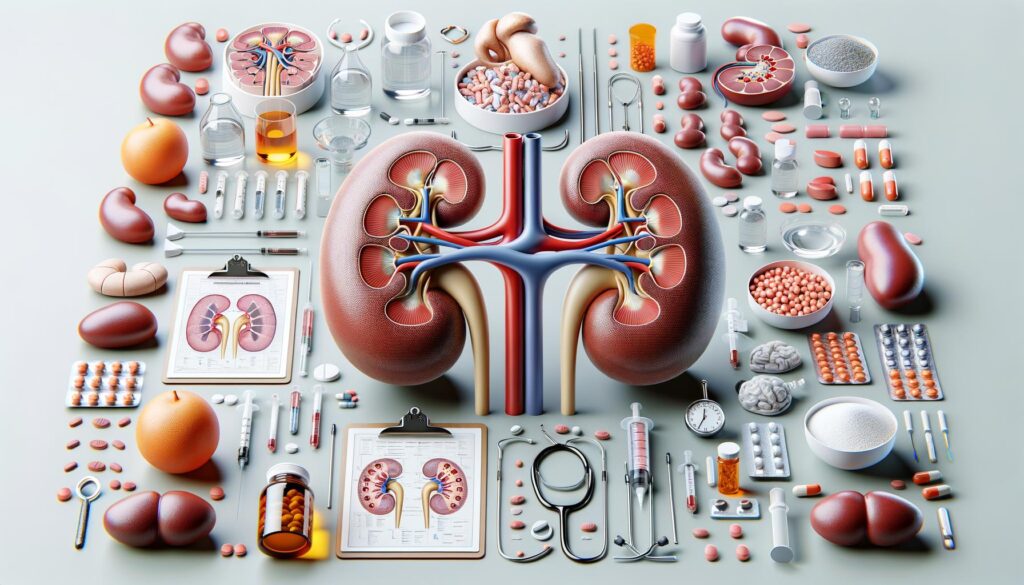Understanding Kidney Disorder: Symptoms and Treatment Options

Recognizing Kidney Disorder Symptoms
Understanding the symptoms of kidney disorders is crucial in seeking timely medical intervention. Common indicators include persistent fatigue, as the kidneys struggle to filter waste and toxins effectively, which can lead to decreased overall energy levels. Additionally, changes in urination patterns, such as increased frequency, foamy or darkened urine, and blood in the urine, can signal a problem with kidney function. It’s essential to note that these symptoms may develop slowly over time, often going unnoticed until the disorder progresses significantly.
Furthermore, swelling in the extremities, such as the ankles and wrists, is another common symptom. This occurs when the kidneys are unable to remove excess fluid and sodium from the body. Moreover, individuals might experience shortness of breath due to fluid buildup in the lungs, and confusion or difficulty concentrating, which can result from the accumulation of waste products affecting the brain. Recognizing these symptoms early is key to managing kidney health effectively.
Diagnosing Kidney Disorders
Diagnosing kidney disorders typically involves a combination of tests and assessments by healthcare professionals. Blood tests are critical in determining kidney function, specifically measuring levels of creatinine, a waste product that healthy kidneys filter out. Elevated creatinine levels can indicate reduced kidney function. In addition to blood tests, urine tests are employed to assess proteinuria, a condition in which excess protein enters the urine, signifying kidney damage.
Imaging tests such as ultrasounds or CT scans provide further clarity by visualizing the kidneys and identifying any structural issues. In specific cases, a kidney biopsy may be conducted to obtain tissue samples, allowing for a more detailed examination of potential damage or disease. This comprehensive diagnostic approach ensures that an accurate diagnosis is made, guiding the ensuing treatment plan.
Treatment Options for Kidney Disorders
The treatment for kidney disorders largely depends on the underlying cause and severity of the condition. In instances of acute kidney injury, immediate medical intervention can restore kidney function, often necessitating hospitalization and supportive treatments, such as intravenous fluids and medications to regulate blood pressure and balance electrolytes. For chronic kidney disease, a progressive condition, treatment focuses on slowing its progression and managing associated health issues.
- Medications are prescribed to control blood pressure and manage diabetes, if applicable, as these are two leading causes of kidney disease.
- Dietary modifications are essential, emphasizing reduced sodium, phosphorus, and protein intake to lessen kidney strain.
- In advanced stages, dialysis or a kidney transplant may become necessary to sustain health and function.
Each treatment plan is tailored to the individual’s health profile, emphasizing the importance of regular monitoring and adjustment by healthcare providers.
Lifestyle Adjustments for Kidney Health
Maintaining a healthy lifestyle plays a vital role in supporting kidney function and preventing progression of kidney disorders. A balanced diet rich in fruits, vegetables, and whole grains helps manage weight and supports overall health. Regular exercise is encouraged, as it improves cardiovascular health and helps control blood pressure and blood sugar levels, both crucial in protecting kidney function.
Hydration is another key component; drinking adequate water assists the kidneys in flushing out toxins and waste products. Smoking cessation and limiting alcohol intake are also advised, as these habits can exacerbate kidney damage. Prioritizing these lifestyle modifications can significantly impact kidney health and delay or prevent the need for more aggressive treatments.
When to Seek Medical Advice
Recognizing when to seek medical advice can prevent worsening conditions. If any symptoms of kidney disorders present, such as persistent fatigue, changes in urination, or unexplained swelling, consulting a healthcare professional is crucial. Early detection through regular check-ups, especially for individuals at higher risk due to age, family history, or pre-existing health conditions, can help manage and prevent kidney damage.
Healthcare providers will typically conduct a thorough evaluation and recommend standard screening tests to monitor kidney function. Staying informed about one’s health and engaging in proactive measures can help maintain optimal kidney health.
Conclusion
Navigating the complexities of kidney disorders requires an awareness of symptoms and an understanding of available treatment options. By recognizing early signs and implementing lifestyle changes, individuals can better manage their kidney health and seek timely medical intervention when needed. Regular consultations with healthcare professionals are essential to monitor and preserve kidney function, ensuring a better quality of life.
